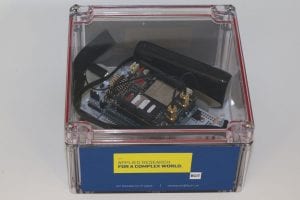Research

The world is changing. Changes that might have taken place over a number of years are now being implemented overnight. Digital transformation, the integration of digital technology into all aspects of business, the environment and society is leading to new ways of doing things. AI, cloud computing, IoT personal health technology, climate change and the green economy, globalization of data and services, the list goes on.
Internet of Things (IoT) is the digital highway that is changing the traditional way of living into our new life style. From smart cities, smart homes, pollution control, energy saving, smart transportation, smart industries all are being transformed due to IoT. There are still a lot of challenges and issues that need to be addressed to achieve the full potential of IoT. These challenges and issues must be considered from various aspects of IoT such as applications, challenges, enabling technologies, social and environmental impacts to mention a few.
Internet of Things excels in remote resource management systems, an opportunity for BC and Canada to access and develop resources which are inaccessible due to the extensive harsh wilderness and extreme weather conditions.
BCIT schools and campuses are optimally positioned to lead Canada as a living lab for a wide range of IOT enabled applications. BCIT has a vast pool of experts in crucial industry areas, as well as the utilities and facilities to enable deployment of IoT solutions and testing them. The following areas are all driven by the IoT Application Framework and are best suited to BCIT school structure:
- Smart Cities
- Smart Homes
- Industry 4.0
- Autonomous transportation
- Digital Health
Research related to IoT infrastructure
- All aspects of the IoT application framework
- Smart devices – Sensor, actuator, wearables R&D
- Cloud services – AI, Data mining, Storage,
- Communication and networking devices & protocols
- Edge device performance and comparative analysis
- Device cybersecurity
IoT Projects
The Centre collaborates with industry, faculty and students to develop projects to investigate and display the capabilities of IoT devices and principles. Some sample projects are included here.
Narrow Band (NB)-IoT – Telus
CST – 4 Students – Data acquisition, Cloud storage and dashboard
CIT – 7 Students – Web Application and dashboard

Telus partnered with BCIT to test their new NB-IoT Network. Telus IoT Starter kits were used to collect environmental data and sent over LTE-M network to both Microsoft Azure and AWS for visualization and storage. Working alongside other team members, the team focused on IoT Core functions, Device registration and AWS IoT management tools and the device battery optimization. This included getting familiar with Mbed OS and Quectel BG96 modem, and writing AT Commands to utilize Power Saving Mode.
BCIT Students Evaluating Air Quality with IoT Devices
In the spring semester 2020 four BCIT Computer Systems Technology (CST) Diploma students learned how the Internet of Things (IoT) can collect and exchange data. Through a four-week Industry Sponsored Student Projects (ISSP) project the students worked with their clients, Jonathan Bassan, Director Internet of Things, and School of Computing and Academic Studies Faculty Advisor Pat McGee on how IoT sensors can transfer data over a network without requiring human-to-human or human-to-computer interaction.